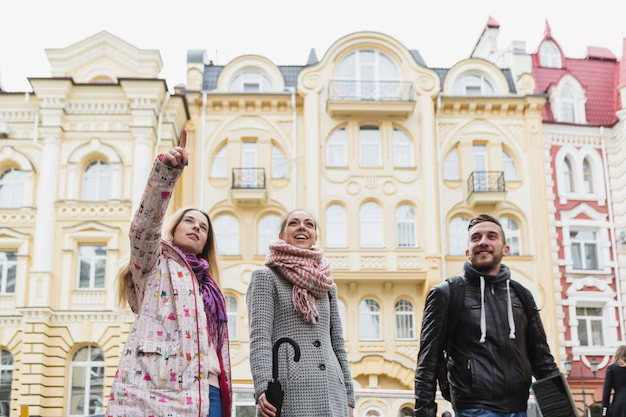In an increasingly interconnected world, obtaining European Residency by Investment has become a strategic move for many high-net-worth individuals.
This pathway, often termed “Golden Visa,” allows investors and their families to reside, work, and study in Europe, unlocking numerous personal and financial benefits.
However, selecting the right country for investment is crucial, as each nation offers distinct programs with varying requirements and advantages.
What is European Residency by Investment?

European Residency by Investment programs enable non-EU nationals to acquire residency rights in a European country by making a substantial financial contribution.
These investments typically involve real estate purchases, government contributions, or business ventures.
Upon fulfilling the investment criteria, investors receive residency permits, granting them and their families the right to live in the host country and, in many cases, travel freely within the Schengen Area.
Benefits of Obtaining European Residency by Investment
Securing European Residency by Investment offers a multitude of advantages:
- Enhanced Mobility: Residency in a Schengen member country allows visa-free travel across 29 European nations, facilitating both business and leisure activities.
- Quality of Life: Europe is renowned for its high living standards, encompassing excellent healthcare, education, and infrastructure.
- Educational Opportunities: Residents can access world-class educational institutions, providing diverse opportunities for personal and professional development.
- Business Expansion: Establishing residency can serve as a gateway to the European market, offering a stable environment for business growth and diversification.
- Tax Regime: Certain countries offer favorable tax regimes for new residents, which can be advantageous for wealth management and estate planning.
- Family Security: Residency permits often extend to immediate family members, ensuring a secure and prosperous future for loved ones.
When considering European Residency by Investment, it’s essential to evaluate each country’s specific program details, investment thresholds, processing times, and associated benefits to align with personal and financial objectives
Top European Countries Offering Residency by Investment

-
Portugal Golden Visa Program
Overview
Established in 2012, Portugal’s Golden Visa program provides non-EU nationals with a pathway to residency through various investment options. The program is known for its flexibility and offers the opportunity to apply for Portuguese citizenship after five years, subject to legal requirements.
Investment Options
Applicants can qualify through different investment routes, including:
- Real Estate Investment: Purchase property meeting the program’s criteria.
- Capital Transfer: Investment in funds, government bonds, or bank deposits.
- Business Creation: Establishing or investing in a business that generates local employment.
Key Benefits
- Visa-Free Travel: Residency grants access to the Schengen Area, allowing visa-free travel across 29 countries.
- Family Inclusion: Covers the main applicant, spouse, and dependent children.
- Pathway to Citizenship: Eligible for naturalization after maintaining residency and investment for five years.
-
Greece Golden Visa Program
Overview
Launched in 2013, Greece’s Golden Visa program offers residency to non-EU nationals through investment. The program has one of the lowest investment thresholds in Europe and does not require a minimum stay, providing flexibility to investors.
Investment Options
Applicants can qualify by investing in:
- Real Estate Investment: Minimum property purchase of €250,000.
- Other Investment Avenues: Potential future expansion into alternative investment categories.
Key Benefits
- Visa-Free Travel: Residency grants access to the Schengen Area.
- Family Inclusion: Covers the applicant, spouse, children up to 21 years old, and parents of both spouses.
- No Minimum Stay Requirement: No obligation to reside in Greece to maintain residency.
-
Malta Permanent Residence Program (MPRP)
Overview
Malta’s Permanent Residence Program (MPRP) allows non-EU nationals and their families to obtain permanent residency in Malta through investment. The program provides access to a stable and business-friendly EU environment.
Investment Options
Applicants must meet the following investment requirements:
- Real Estate Investment: Purchase property with a minimum value of €375,000 or lease property with a minimum annual rent of €14,000.
- Government Contribution: €30,000 if purchasing property, or €60,000 if leasing.
- Donation: A mandatory €2,000 contribution to a registered philanthropic, cultural, scientific, artistic, sport, or animal welfare organization.
Key Benefits
- Visa-Free Travel: Residency in Malta provides access to the Schengen Area.
- Family Inclusion: Covers the main applicant, spouse, dependent children, and parents.
- English-Speaking Environment: One of Malta’s official languages is English, facilitating communication and integration.
-
Cyprus Permanent Residence Program
Overview
Cyprus offers a Permanent Residence Program that allows non-EU nationals to obtain Residency by Investment. The program is attractive due to its efficient processing and Mediterranean lifestyle.
Investment Options
Applicants can qualify by investing in:
- Real Estate Investment: Minimum €300,000 in new residential properties.
- Company Investment: Minimum €300,000 in a Cyprus-based company with at least five employees.
- Investment in Funds: Minimum €300,000 in units of Cyprus Investment Funds regulated by the Cyprus Securities and Exchange Commission.
Key Benefits
- Visa-Free Travel: Residency allows ease of access to Cyprus and facilitates EU travel.
- Family Inclusion: Covers the main applicant, spouse, children under 25, and parents.
- High Quality of Life: Cyprus offers a Mediterranean lifestyle with excellent healthcare, education, and business opportunities.
Types of Investment Options for European Residency
European countries offering residency by investment programs provide various avenues for investors to obtain residency status.
The primary investment options include real estate acquisition, business investments, government bonds, and donations to designated funds. Each option has distinct features and benefits, catering to different investor preferences and objectives.
Real Estate Investment
Investing in real estate is a prevalent route for obtaining European residency. Applicants are required to purchase property residential or commercial meeting a specified minimum value set by the host country.
This approach not only facilitates residency but also allows investors to own tangible assets in potentially appreciating markets.
Benefits of Real Estate Investment
- Potential for Capital Appreciation: Real estate markets in certain European regions have demonstrated consistent growth, offering prospects for property value increase over time.
- Rental Income Opportunities: Investors can generate passive income by leasing their properties, enhancing the overall return on investment.
- Personal Use: Ownership provides the flexibility to use the property as a personal residence, vacation home, or for business purposes.
Business Investment
Starting or Buying a Business
Some residency programs encourage economic development by allowing investors to establish a new business or acquire an existing one within the host country.
This option typically requires a minimum capital investment and may necessitate the creation of employment opportunities for local residents.
Advantages of Entrepreneurship
- Economic Integration: Operating a business fosters deeper integration into the local economy and community.
- Profit Generation: Successful enterprises can yield significant financial returns, contributing to wealth accumulation.
- Diversification: Investing in a new market allows for diversification of business interests and risk mitigation.
Government Bonds

Government bonds provide a secure and low-risk investment option for obtaining European residency. These fixed-income securities, issued by national governments, require investors to contribute a specified amount and hold the bonds for a set period, usually around five years.
Unlike real estate or business investments, government bonds typically ensure the return of the principal amount at maturity, making them an attractive choice for risk-averse investors. This passive investment route does not require active business management, making it ideal for those seeking residency without additional financial commitments.
European residency by investment programs extends benefits to the investor’s family, including spouses and dependent children. Additionally, some countries offer a pathway to citizenship after maintaining residency for a designated period. However, eligibility requirements and investment thresholds vary across European nations, so it is crucial to stay updated on policy changes.
Consulting with an immigration expert ensures compliance with regulations and maximizes the benefits of this investment option.
Explanation of Bonds
Bonds are fixed-income financial instruments issued by governments, corporations, or other entities to raise capital. When an investor purchases a bond, they essentially lend money to the issuer in exchange for periodic interest payments (known as the coupon) and the return of the principal amount at the bond’s maturity date.
How Bonds Work
- The issuer (e.g., a government) sets a bond’s face value, interest rate, and maturity period.
- Investors buy the bond, effectively loaning money to the issuer.
- Over time, the investor receives regular interest payments.
- At maturity, the investor gets back the initial investment (principal).
Why Governments Issue Bonds
Governments use bonds to finance infrastructure projects, public services, or national development programs. Because they are backed by the government, these bonds are generally considered low-risk investments.
Types of Government Bonds
- Treasury Bonds (T-Bonds): Long-term securities with fixed interest rates.
- Savings Bonds: Low-risk investments typically designed for individual investors.
- Municipal Bonds: Issued by local governments for regional projects.
Bonds and Residency by Investment
Some European countries allow investors to qualify for residency by purchasing government bonds. These programs offer a secure and passive investment route, ensuring capital protection while providing long-term residency benefits.
How They Work for Residency
Investing in government bonds offers a secure and passive way to obtain European residency. Applicants must invest a specified amount in government-issued bonds and hold them for a set period, typically around five years.
This low-risk investment ensures the return of the principal at maturity, unlike real estate or business investments. Residency programs that accept government bonds often extend benefits to family members and may offer a pathway to citizenship after maintaining residency for a required period.
Since policies vary by country, consulting an immigration expert ensures compliance and maximizes the benefits.
Donations to Funds

Overview of Charitable Contributions
Some residency programs provide the option to make a non-refundable donation to a national development fund, research institution, or other government-approved entities. These contributions support public projects, cultural initiatives, or charitable causes within the host country.
Impact on Residency Status
Making a qualifying donation can expedite the residency application process, as it directly benefits the host nation’s development goals. While this option does not offer a financial return, it often involves a lower capital requirement compared to other investment types and reflects a commitment to contributing positively to the country’s growth.
When selecting an investment route for European residency, it’s essential to consider personal financial goals, risk tolerance, and the specific requirements of each country’s program. Engaging with experienced immigration consultants can provide tailored guidance to navigate these options effectively.
How They Work for Residency
Investing in government bonds offers a secure and passive way to obtain European residency. Applicants must invest a specified amount in government-issued bonds and hold them for a set period, typically around five years.
This low-risk investment ensures the return of the principal at maturity, unlike real estate or business investments. Residency programs that accept government bonds often extend benefits to family members and may offer a pathway to citizenship after maintaining residency for a required period.
Since policies vary by country, consulting an immigration expert ensures compliance and maximizes the benefits.
Donations to Funds
Overview of Charitable Contributions
Some residency programs provide the option to make a non-refundable donation to a national development fund, research institution, or other government-approved entities. These contributions support public projects, cultural initiatives, or charitable causes within the host country.
Impact on Residency Status
Making a qualifying donation can expedite the residency application process, as it directly benefits the host nation’s development goals. While this option does not offer a financial return, it often involves a lower capital requirement compared to other investment types and reflects a commitment to contributing positively to the country’s growth.
When selecting an investment route for European residency, it’s essential to consider personal financial goals, risk tolerance, and the specific requirements of each country’s program. Engaging with experienced immigration consultants can provide tailored guidance to navigate these options effectively.
Key Factors to Consider When Choosing an Investment for European Residency
Selecting the optimal investment pathway for European residency requires a comprehensive evaluation of several critical factors. These considerations ensure that the chosen route aligns with your financial goals, lifestyle preferences, and long-term plans.
Financial Requirements
Minimum Investment Amounts
Each country offering residency by investment programs stipulates a minimum investment threshold. For instance, Portugal requires a real estate investment starting from €280,000, while Greece offers options beginning at €250,000. It’s essential to assess your financial capacity to meet these initial requirements.
Ongoing Fees and Taxes
Beyond the initial investment, be mindful of additional costs such as application fees, legal expenses, property maintenance, and local taxes. These recurring obligations can impact the overall affordability and sustainability of your investment.
Return on Investment (ROI)
Potential for Profit
Investments, particularly in real estate or business ventures, may yield financial returns. Researching local market conditions can provide insights into potential rental income, property appreciation, or business profitability.
Market Stability
Understanding the economic and political stability of the host country is crucial. Stable markets often offer more predictable returns and lower risks, contributing to the security of your investment.
Lifestyle Preferences
Country Choice and Quality of Life
Consider how the country’s climate, healthcare system, education, and overall quality of life align with your personal and family needs. For example, countries like Portugal and Malta are known for their pleasant climates and high living standards.
Language and Culture Considerations
Language barriers and cultural differences can affect your integration into the local community. Opting for a country where you are comfortable with the language and culture can enhance your residency experience.
Time Commitment
Processing Times for Residency
The duration of the application process varies by country. Some programs offer expedited procedures, while others may take longer to grant residency status. Understanding these timelines is crucial for effective planning and managing expectations during the application process.
Long-Term Involvement Required
Certain programs necessitate a sustained commitment, such as maintaining the investment for a specified period or fulfilling physical residency requirements. Evaluating your willingness and ability to meet these obligations is essential for compliance and future planning.
In conclusion, a thorough assessment of these factors, tailored to your unique circumstances and objectives, will guide you in selecting the most suitable investment option for obtaining European residency.
Engaging with experienced immigration consultants can provide personalized guidance to navigate these considerations effectively.
Common Challenges and How to Overcome Them
Embarking on the journey to obtain European Residency by Investment presents several challenges. Understanding these potential obstacles and implementing strategies to address them can facilitate a smoother application process.
● Complex Application Procedures
Residency by investment programs often involve intricate legal and administrative processes, requiring meticulous documentation and adherence to specific regulations.
Solution: Engage experienced immigration consultants who specialize in residency by investment. Their expertise can guide you through each step, ensuring compliance and increasing the likelihood of a successful application.
● Evolving Legal Frameworks
Immigration laws and investment requirements are subject to change, which can impact eligibility and the benefits associated with residency programs.
Solution: Stay informed about the latest legal developments in your chosen country. Regular consultations with legal advisors and monitoring official government communications can help you adapt to changes promptly.
● Financial Risks
Investing substantial capital in foreign real estate or businesses carries inherent financial risks, including market volatility and potential depreciation.
Solution: Conduct thorough due diligence before making any investment. Assess market trends, seek independent financial advice, and consider diversifying investments to mitigate potential losses.
● Cultural and Language Barriers
Integrating into a new country with different cultural norms and language can pose significant challenges.
Solution: Prioritize countries where you are comfortable with the language and culture. Engaging in language courses and cultural orientation programs can also ease the transition and enhance your integration experience.
● Time Constraints
The application process for residency can be time-consuming, with varying processing times across different countries.
Solution: Plan accordingly by understanding the specific timelines associated with your chosen program. Early preparation and prompt submission of required documents can help expedite the process.
Why Choose Global for Your European Residency by Investment?
(GLOBAL) stands out as a premier choice for individuals seeking European Residency by Investment.
Extensive Experience
With over 29 years in the investment migration industry, Global has a proven track record of successfully assisting clients worldwide in obtaining residency and citizenship.
Multinational Team
GLOBAL’s team comprises experts from eight different countries, collectively speaking more than ten languages. This diversity enables them to cater to a broad clientele, offering personalized services that consider various cultural nuances.
Comprehensive Services
Beyond facilitating residency applications, GLOBAL provides end-to-end support, including legal assistance, investment advice, and post-residency services. Their holistic approach ensures that clients receive all necessary support throughout their journey.
Approved and Licensed
GLOBAL is an approved and licensed company, recognized by multiple governments for their professionalism and adherence to industry standards. This accreditation underscores their credibility and commitment to excellence.
From consultation to post-residency support, Global is your trusted partner for a smooth and successful European residency journey.
Securing European residency by investment offers numerous benefits, including global mobility, financial security, and an improved quality of life.
Choosing the right investment whether real estate, business, government bonds, or charitable contributions requires careful evaluation of financial commitments, returns, and long-term residency requirements.
With over 29 years of expertise, Global provides personalized guidance to simplify the application process. As a government-approved firm with a multilingual team and global presence, we ensure compliance while maximizing client benefits.

